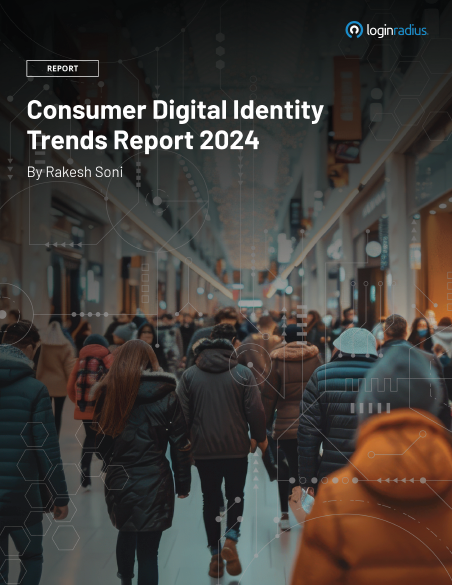Introduction
Cloud computing has revolutionized the world of data storage. It has made it possible for businesses to store their data remotely and access it from any location, at any time.
But, with great opportunity comes great responsibility. Cloud data is extremely sensitive and confidential; it needs to be protected from cyber threats like malware, ransomware, and other forms of malicious software.
This is where cloud security comes into play—it protects cloud-based data and computing from these threats by employing advanced systems that detect and prevent any sort of attack before it takes place.
What Is Cloud Security?
Cloud security is the practice of keeping cloud-based data, systems, and infrastructure safe from cyber threats. It includes a collection of rules and technologies that help prevent unauthorized access, malware infections, hackers, and DDoS attacks.
The security measures are based on the following principles:
- Centralized security
Cloud security emphasizes protection in the same fashion as cloud computing concentrates on applications and data. When disaster recovery plans are managed in one location, they may be readily enacted and enforced.
- Reduced administration
By using a trustworthy cloud services provider or cloud security platform, you can bid farewell to manual security setups and near-constant security upgrades.
- Reliability
Cloud computing services provide the highest level of consistency. Users may safely access data and apps in the cloud no matter where they are or what device they are using with the correct cloud security measures in place.
- Lower initial investment
One of the most significant benefits of cloud computing is the elimination of the requirement for specific hardware. Not needing to invest in specialized hardware saves you money in the short term and can also help you improve your security.
- Greater expansion flexibility
Cloud computing enables you to grow to meet new demands, allowing you to add more apps and data storage as needed. Cloud security grows with your cloud computing services without difficulty. When your demands evolve, cloud security's centralized structure allows you to rapidly incorporate new apps and other features without jeopardizing your data protection.
Critical Components of Cloud Security
The cloud security programs work by ensuring the following:
- Data Security
It is a component of cloud security that deals with the technological side of threat mitigation. Suppliers and users may use tools and technologies to construct barriers between sensitive data access and visibility. Encryption is one of the most powerful tools available among these.
- Customer Identity And Access Management (CIAM)
The accessibility capabilities granted to user accounts are managed by customer identity and access management (CIAM). Managing user account identification and authorization also applies here. CIAM includes registration, authentication, user management, data governance, and single sign-on.
- Governance
The emphasis of governance is on threat prevention, detection, and mitigation strategies. Threat intelligence may assist SMBs and organizations in identifying and prioritizing threats in order to keep critical systems safe. These are particularly applicable in corporate settings, although standards for safe usage and threat response can be beneficial to any user.
- Data Retention (DR) And Business Continuity (BC)
Technical disaster recovery methods are included in data retention (DR) and business continuity (BC) planning in the event of data loss. Methods for data redundancy, like backups, are essential components of every DR and BC plan. A good BC strategy should include frameworks for validating the veracity of backups and specific staff recovery instructions.
- Legal Compliance
Legal compliance aims to safeguard user privacy as defined by legislative authorities. Governments have recognized the need to prevent the commercial exploitation of private user information. As a result, enterprises must adhere to rules to comply with these policies.
Factors Influencing Cloud Security
The following factors play a significant role in influencing cloud security.
- Misconfiguration
Incorrectly configured cloud security settings frequently cause cloud data breaches. Cloud security posture management solutions used by many enterprises are insufficient for securing their cloud-based infrastructure.
- Unauthorized access
As compared to on-premises infrastructure, cloud-based infrastructure is located outside the network perimeter and is widely accessible from the public Internet. While this is beneficial for employee and customer access to this infrastructure, it also makes it simpler for an attacker to obtain unauthorized access to an organization's cloud-based resources.
- Insecure APIs and interfaces
CSPs typically provide a range of application programming interfaces (APIs) and interfaces to clients. In general, these APIs are well-documented to make them accessible to CSP consumers.
- Account hijacking
Many people have extremely poor password safety, including choosing weak passwords and repeating passwords. Because it allows a single stolen password to be used on several accounts, this issue exacerbates the effect of phishing attempts and data breaches.
- Cyberattacks
Cybercrime is a business, and cybercriminals choose their targets depending on how profitable their attacks would be. Cloud-based infrastructure is easily accessible through the public Internet, is frequently inadequately secured, and includes many vital and confidential data.
- External data sharing
The cloud is designed to simplify data exchange. Many clouds allow you to invite a collaborator expressly through email or provide a link that allows anybody with the URL to view the shared resource. While this ease of data exchange is beneficial, it may also pose a significant cloud security risk.
- Attacks on the denial of system
The cloud is critical to the capacity of many firms to do business. They utilize the cloud to store mission-essential data and execute the crucial internal and external-facing apps. As a result, a successful Denial of Service (DoS) assault on cloud infrastructure is likely to significantly impact a variety of enterprises.
Final Thoughts
In summary, cloud security is more about people and processes than technology. The cloud infrastructure must be designed to support secure operations, but ultimately the responsibility for security lies with the individual end user.














